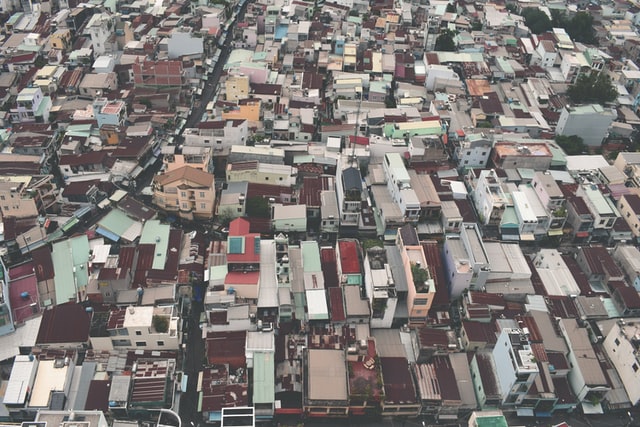
Global inequality in the age of the super-rich.
Article by Thomas Catherwood
Photo by Eric Masur on Unsplash
Following the ongoing Covid 19 pandemic, the wealth of the world’s richest has increased, while the situations of billions around the globe have felt the converse effect. While the lives of many have been turned upside down due to lockdowns, decreased employment opportunities, and fears for the health of loved ones, the pandemic has proved to be a profitable business for the world’s financial elite.
‘The wealth of the top 10 richest men has doubled, while the incomes of 99% of humanity are worse off because of Covid 19…the 10 richest men in the world own more than the bottom 3.1 billion people’ (Oxfam, 2022). These statistics alone shine a light on how wealthy some individuals are in the modern age, and how something as little as a global pandemic has had little consequence on the accumulation of their ludicrous wealth- wealth which surely could have a profound effect on the rest of the world. This, therefore, begs the question- how bad is global inequality, and are there ways to solve it?
It is the view of some that global inequalities are merited, so long as wealth is accumulated through lawful means, is the direct outcome of fair competition, and is earned through hard work and professional perseverance (Marshall et al, 1997). While this seems all well and good on the surface, the truth is that rising economic growth may only contribute to a rise in social inequalities also, with the poor getting poorer and the rich getting richer. ‘If too much wealth is concentrated in the upper class, the rest of society does not have enough resources to effectively engage in economic activity. People can no longer afford to take out loans, consume, or attend school. Should this happen, cyclical behaviour would lead to a decline in economic growth and monopolistic behaviour (The Independent, 2015).
Additionally, the more prevalent income inequality is in a society, the lower the level of social mobility. Social mobility can be defined as the ability for people to move up and down the economic ladder. If social mobility is low, individuals may start to believe there is no way to improve their situations and stagnate in poverty or an unhappy lifestyle. Because of the low social mobility and seemingly reduced options available to them, they may turn to crime or antisocial behaviours, which in turn exacerbates the impact a high-income inequality has on others. This is demonstrated in the chart below- the USA has the highest level of income inequality, yet also leads the race in severe social ills such as homicide, teenage pregnancy, obesity and mental health issues to name just a few. It is clear then to see why income inequality is such a big issue. The way the wealth is spread among a country’s citizens has a totally conspicuous effect on the happiness and circumstances of the country as a whole- effects that unjustly affect the poorest most severely.
I must note that this article is in no way an advertisement for socialism- it is the very spirit of capitalism, and the promise of a better future for oneself that inspires us to climb the social hierarchies and work hard to achieve our goals. High social mobility (whilst exceedingly low in the USA due to high income inequality) is what pushes companies to innovate and consumers to strive for. However, a perfect society in which all citizens are wealthy and crime is non-existent is not a realistic scenario. Economist Thomas Picketty proposes a more progressive income tax, in which a ‘global wealth tax’ would slow down both individuals and corporations from using their insanely large profits for private means, and can then be used for funding charities, education and rehabilitation for those who have turned to crime.
In short, money distribution would be allocated more in favour of the lower classes and those in poverty, thus potentially leading to a lower income inequality and a reduction in crime rates and social ills. Billionaires in an age of such high proportions of inequality should not exist. That’s not to say rich people shouldn’t- wealth gives people something to strive for, a reason to work and learn, but outrageously wealthy individuals must be taxed accordingly for the sake of a more progressive, healthy and happy future.

0 Comments